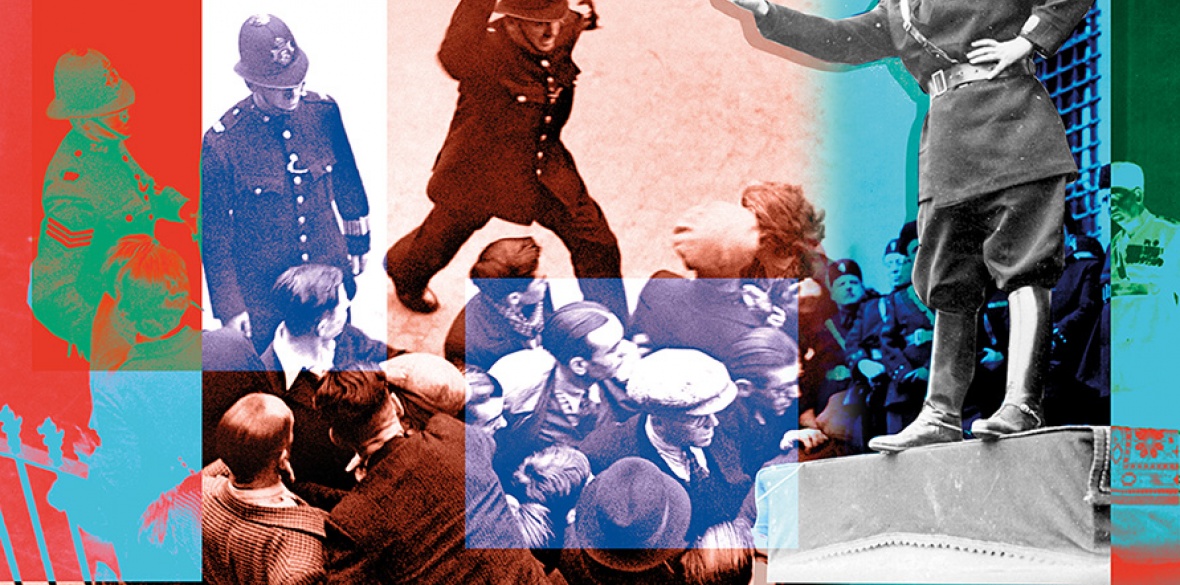This is the last article you can read this month
You can read more article this month
You can read more articles this month
Sorry your limit is up for this month
Reset on:
Please help support the Morning Star by subscribing here
THERE’S a post going around on social media which claims to list the “Warning Signs of Fascism.”
I believe that this is based on the work of political scientist Lawrence Britt, and includes such signs as increasing militarism, rampant sexism, anti-intellectualism and the suppression of the labour movement.
While this list is interesting, the warning signs listed are hardly unique to a fascist dictatorship and can be found in varying degrees in bourgeois democracies across the world.
A list of outward appearances is hardly sufficient as an analysis of fascism. As socialists we should always seek to look beyond appearances and try to understand the forces in society which give rise to phenomena.
It is common to hear people attribute the rise of fascism to petty bourgeois rebellion and/or far-right street thugs.
This is not to say that fascism does not draw support from the most reactionary elements in society, or that far-right thuggery is not often used as a tool of fascism (and, as was the case of the Night of the Long Knives, jettisoned when required), but it contributes to a misunderstanding of fascism as something that arises out of thin air — imposed from outside the class struggle.
This conception of fascism is worse than useless and, as socialists, we need to have a class analysis of fascism.
Georgi Dimitrov argued against this understanding of fascism when he stated that “fascism is not a form of state power ‘standing above both classes’… Fascism is the power of finance capital itself. It is the organisation of terrorist vengeance against the working class and revolutionary section of the peasantry and intelligentsia.”
Fascism, according to Dimitrov, was not a phenomenon which existed outside of class society — it was a result of class society.
He went on to explain how the terroristic rule of fascism sustained itself by both appealing to pre-existing prejudices and by perverting the otherwise noble aspirations for justice and even revolutionary transformation.
When the economy can no longer provide a support base for monopoly capitalism, it increasingly turns to violence and the politics of division and hatred to hold on to power. As Lenin put it, “fascism is capitalism in decay.”
It is also interesting to note, as many have already done, that fascism involves the techniques of colonial rule brought home.
The experience of colonial subjects — the violence, the “divide and rule,” the suppression of democracy — are also features of fascism. Quite often we find “liberal democracies” practising fascism abroad.
Evidence for the claim that fascism is just another form of ruling-class state power is provided by Michael Parenti in his analysis of fascism in Italy and Germany.
He explains how, far from being socialist, both Hitler and Mussolini set about privatising state-owned industries and provided generous subsidies to big business. In return the dictators were rewarded through slush funds with contributions by their ruling-class supporters.
Parenti also highlights how German industrialists benefited from the most despicable aspects of fascism, including slave labour provided by the state.
Fascism, as with all forms of the capitalist state, serves the interests of at least a significant section of the capitalist class. Fascism is an ever-present threat.
As Dimitrov highlighted, it takes different forms in different countries — it exploits the unique prejudices of a nation’s people.
As Rajani Palme Dutt said, it is a threat which cannot be countered by reformism and retreat in the labour movement.
It cannot be accommodated or pandered to in the hope of being tamed. A class analysis of fascism leads us to the conclusion that it cannot be confronted by tinkering around the edges and by criticising its outward appearances.
Fascism must be confronted as part of the struggle for socialism.










